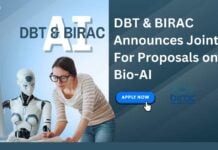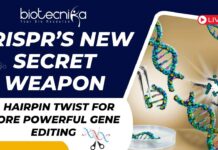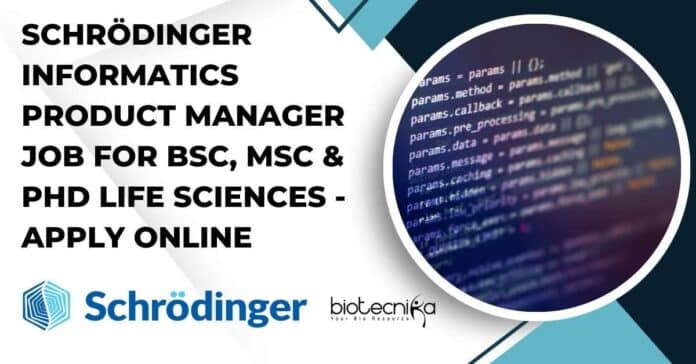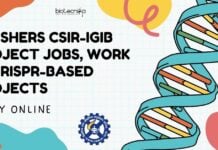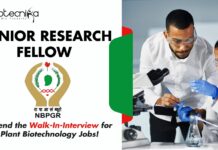Schrödinger Informatics Product Manager Job For BSc, MSc & PhD Life Sciences – Apply Online
Schrödinger Informatics Product Manager Job For BSc, MSc & PhD Life Sciences – Apply Online. BSc, MSc & PhD Life Sciences, Biochemistry and Biology candidates can apply online for the Associate Enterprise Informatics Product Manager job at Schrödinger. Interested and eligible applicants can check out all of the details on the same below
Possible Interview Questions for the Technical Round are posted below
Associate Enterprise Informatics Product Manager – Hyderabad
Location: Hyderabad
Associate Enterprise Informatics Product Manager
Our mission is to dramatically improve human health and quality of life by developing and applying advanced computational methods that transform the way new medicines are designed.
As a member of our Enterprise Informatics team, you will support the continued development of LiveDesign, our well-established, industry-leading molecular design platform. Product Managers in LiveDesign help our engineering teams create groundbreaking software by driving functionality design, defining success, setting and prioritizing goals accordingly, and ensuring the scientific mission drives the process. This role provides hands-on, day-to-day access to the business direction and scientific functionality of the product and industry. As an Enterprise Product Manager, you’ll advocate for users of our
software by applying the wealth of knowledge you have acquired through practical experience to bridge the information gaps between the technical, scientific, and business worlds.Who will love this job:
The Product Manager plays a vital interdisciplinary role in helping the engineering teams stay organized, connected with the long term goals, and on track with the priorities and scientific mission of the product. This role provides hands-on, day-to-day access to the business direction/scientific functionality, and bridges the information gap between the technical and business worlds. Individuals who will love this job are:
- Highly organized with excellent communication skills
- Experienced with software development
- Experienced with chemistry, biology, informatics, or pharmaceutical/biopharmaceutical discovery, in order to speak to both the scientific and technical functions
What you’ll do:
- Work with both the international scientific and technical teams to design and drive the development of model-supported biotherapeutic design tools via user stories, workflow definition, and facilitating iterative feedback
- Work with US-based product leadership to translate the identified scientific needs into user stories, and software tools by collaborating closely with our customer-facing teams, UX, and Engineering team on the optimal implementation of the product designs
- Be the go-to individual for managing projects (e.g., communicating and managing the collective challenges, needs, and concerns across all teams on the project)
- Facilitate the iterative feedback and testing cycles of features
What you should have:
- BS with 2+ years of research experience, or MS/PhD in a life sciences field related to drug discovery (e.g., medicinal chemistry, biochemistry, biology, materials science, or related fields)
- Experience designing or developing enterprise software
- Experience with project management and a track record of being highly organized, with excellent communication and documentation skills, to manage technical challenges, risk, and scope
- Experience with informatic and/or molecular modeling software
- Experience with informatics based drug discovery in a pharmaceutical setting
As an equal opportunity employer, Schrödinger hires outstanding individuals into every position in the company. People who work with us have a high degree of engagement, a commitment to working effectively in teams, and a passion for the company’s mission. We place the highest value on creating a safe environment where our employees can grow and contribute, and refuse to discriminate on the basis of race, color, religious belief, sex, age, disability, national origin, alienage or citizenship status, marital status, partnership status, caregiver status, sexual and reproductive health decisions, gender identity or expression, or sexual orientation. To us, “diversity” isn’t just a buzzword, but an important element of our core principles and key business practices. We believe that diverse companies innovate better and think more creatively than homogenous ones because they take into account a wide range of viewpoints. For us, greater diversity doesn’t mean better headlines or public images – it means increased adaptability and profitability.
Possible Interview Questions for the Technical Round:
- Can you provide examples of your experience in designing or developing enterprise software? How have you applied your technical skills and knowledge to drive the development of model-supported biotherapeutic design tools?
- Answer: In my previous role, I was involved in designing and developing enterprise software for biotherapeutic design. For instance, I worked on a project where we created a platform that integrated molecular modeling software with informatics tools to enable efficient drug discovery. By collaborating with scientific and technical teams, I translated scientific needs into user stories and facilitated the implementation of the product designs. Through iterative feedback and testing cycles, we ensured that the software met the requirements of the users and supported their biotherapeutic design workflows.
- How have you utilized your project management skills to successfully manage technical challenges, risk, and scope? Can you share an example of a project you managed and how you ensured effective communication and coordination across multiple teams?
- Answer: As a Product Manager, I have successfully managed projects by leveraging my project management skills. In a previous project, we were tasked with developing a software tool for chemical library design. I ensured effective communication and coordination by regularly conducting team meetings, setting clear project objectives, and defining milestones. By maintaining open lines of communication, addressing technical challenges proactively, and managing scope changes, we were able to deliver the project on time and within budget.
- How have you applied your knowledge of informatics-based drug discovery in a pharmaceutical setting? Can you discuss a specific scenario where you utilized informatics tools to optimize the drug discovery process or improve efficiency?
- Answer: In my previous role, I worked on optimizing the drug discovery process through informatics-based approaches. One project involved implementing a data management system that integrated various informatics tools, such as virtual screening and molecular docking, to accelerate the identification of potential drug candidates. By leveraging these tools, we improved the efficiency of screening processes, identified novel chemical scaffolds, and ultimately expedited the lead optimization phase. This resulted in cost savings and increased productivity in the drug discovery pipeline.
- How do you bridge the information gap between the technical and business worlds in your role as a Product Manager? Can you provide an example of a situation where you effectively communicated complex scientific concepts to stakeholders with varying technical backgrounds?
- Answer: As a Product Manager, I bridge the information gap by effectively communicating complex scientific concepts to stakeholders with diverse technical backgrounds. In a previous project, we developed a software tool for protein structure prediction. To ensure successful adoption of the tool, I collaborated with both technical and business teams to translate technical specifications into user-friendly language. By using clear and concise explanations, visual aids, and relatable examples, I effectively conveyed the value and functionality of the tool to stakeholders, even those without a strong scientific background.
- How have you collaborated with international scientific and technical teams to drive the development of model-supported biotherapeutic design tools? Can you discuss a situation where you successfully facilitated iterative feedback and testing cycles to improve product features?
- Answer: Collaboration with international teams is essential in driving the development of biotherapeutic design tools. In a previous project, we collaborated with teams located in different regions to develop a platform for antibody design. We conducted regular video conferences, shared project updates, and established a feedback loop to ensure effective communication. By incorporating feedback from diverse perspectives, we iteratively improved the software’s user interface, functionality, and performance. This collaborative approach allowed us to address user needs and deliver a high-quality product.
Remember to tailor the questions to the specific requirements of the interview and provide answers based on your own experiences and expertise.
Editor’s Note: Schrödinger Informatics Product Manager Job For BSc, MSc & PhD Life Sciences – Apply Online. Please ensure you are subscribed to the Biotecnika Times Newsletter and our YouTube channel to be notified of the latest industry news. Follow us on social media like Twitter, Telegram, Facebook

